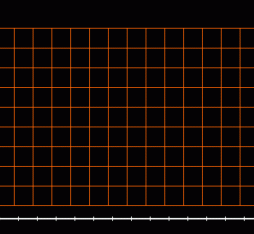• The chief operating officer of La Ferme Digitale Romain Faroux explains how tech entrepreneurs often underestimate the need for adequate infrastructure and sufficiently robust solutions.
• More sharing and better integration of agricultural data, which remains fragmented and underutilized, will play a key role in the future development of AgTech.
How do you view the adoption of digital technologies in the agricultural sector?
New technologies are reaching the market, but it is a slow process.
The eco-system in France where there are 400,000 farms and 85,000 suppliers, is very fragmented. Technology suppliers cannot come to market with top-down solutions, they have to understand farmers and start with use cases and needs. Dynamism in this market is driven by profitability for distributors, notably the cooperatives that account for 90% of French agriculture, which have become essential local intermediaries. Technological adoption requires a great deal of time, education and the development of user-friendly solutions.
For data to be fully exploited, it needs to circulate more easily between the various players: farmers, suppliers, and public institutions.
What are the preconditions for the emergence of truly effective solutions?
Infrastructure is key, because it facilitates the deployment of technological solutions and go-to-market strategies. Farmers also require specific skills and support when they adopt new technologies, which have to work reliably 24/7 regardless of where they are located. And that means there must be a stable network that extends over the entire area of a farm. Farmers don’t derive any benefit from systems that work in fits and starts. They need robust solutions, and tech entrepreneurs aren’t always sufficiently conscious of this fact. Part of our work at La Ferme Digitale is to raise awareness of the need for reliability and the difficulty of crossing the chasm, an adoption gap likened to Death Valley, that exists between early adopters of technology and the mainstream market.
We have been talking about infrastructure, but obviously we should also talk about data… Is data a major stumbling block for the AgTech market?
Data plays a crucial role in precision agriculture, but the way it is utilized is still limited. We don’t take full advantage of agricultural data, because it is often fragmented and not very interoperable. For example, very little attention is paid to yield maps generated by agricultural machinery, as farmers do not always understand how they can benefit from using them. For data to be fully exploited, it needs to circulate more easily between the various players: farmers, suppliers, and public institutions. At the same time, it should also be integrated into practical, easy-to-use solutions.
What can be done to address the need for more data use?
The future of agricultural technology depends on the better integration of data and interoperable solutions. Free circulation and massification of data will be essential if we are to create more effective and sustainable agricultural solutions. However, it will also be crucial to develop these technologies in close collaboration with farmers to ensure that they are based on real needs rather than overly theoretical technology driven approaches. The goal is to create tools that seamlessly integrate into existing farming methods and deliver tangible value from the outset.
What are the main trends in AgTech start-ups?
There is an ongoing boom in the development of solutions that make use of living organisms to replace synthetic substances. Investment in IoT is also growing, mainly in controlled environments like greenhouses, where there is certainty about the availability of the necessary network infrastructure. Investors are also keen to finance projects that combine technological innovation with the creation of tangible value for farmers, such as weather sensors and robotic milking systems.
Sources :
La French AgriTech — De La Terre à la Table (a comprehensive report on the AgTech sector by La Ferme Digitale: in French)
Read more :
Investment in AgTech startups plummeted in 2024
Aisprid lève 10 millions d’euros pour son robot intelligent au service des producteurs de tomates (The French public investment bank BPI reports on funding for the de-leafing robot Aspirid: in French)
 Romain Faroux
Romain Faroux





